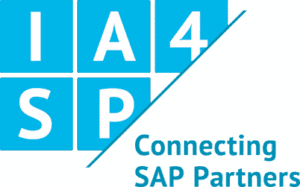Configuring Docker Images via Environment Parameters
To customize the Simplifier Container (simplifierag/simplifier) there are following options provided:
| Docker Environment Parameter | Default Value | Example Value | Description |
DB |
mysql | RDBM type for the main Simplifier database and the plugin databases.
Supported values are “mysql” and “oracle” |
|
MYSQL_HOST |
simplifier-mysql.example.com | Hostname of the database server for the main Simplifier database | |
MYSQL_PORT |
3306 | 3306 | Port of Database Server for the main Simplifier database |
MYSQL_USER |
simplifier | Username of Database Connection Credentials for the main Simplifier database | |
MYSQL_PASSWORD |
MyC0mPle!Pa$$word | Password of Database Connection Credentials for the main Simplifier database | |
MYSQL_DB |
simplifier | Database Name for the main Simplifier Database, used as prefix for plugin databases | |
MONITORING_DBMS |
mysql | Only mysql is supported as monitoring database | |
MONITORING_DB |
Database Name for the monitoring database | ||
MONITORING_DB_HOST |
Hostname of the MySQL server for the monitoring database | ||
MONITORING_DB_USER |
Username for the monitoring database | ||
MONITORING_DB_PASS |
Password for the monitoring database | ||
MONITORING_DB_PORT |
Port for the monitoring database | ||
MONITORING_DB_JDBC_URL |
Alternativly to the single values, you can provide one complete jdbc URL to connect to the monitoring database | ||
PLUGINLIST |
jsonStore,keyValueStorePlugin | Comma Separated Lists of Plugins which should be started | |
VIRTUAL_HOST |
mysimplifier.mycompany.de | DNS Name of Simplifier | |
JVM_PARAMETER |
-Xmx16g
-Xms2g -XX:MaxMetaspaceSize=512m -XX:+UseG1GC -XX:+UseStringDeduplication -XX:-UseGCOverheadLimit -Xss256m |
JVM Settings for Simplifier service | |
CLUSTER_MEMBER_NAME |
NODE_1 | If set, cluster member name of simplifier server, else ignored | |
JMX_AGENT |
true or false | ||
FIREBASE_SETTINGS_PATH |
file path to configure a custom Firebase account used for push notififications | ||
ENV_STATISTICS_EVENT_WRITTEN_BUFFER_HOURS |
Number of Hours that are used as a buffer for statistic aggregation. | ||
FEATURE_SSBO_JS_DEBUGGING |
false | true or false
If set to true, experimental feature for debugging server side business objects is activated. Available since Release 8 EHP 2 |
|
FEATURE_LEGACY_OPCUA |
false | true or false
If set to true, legacy OPC UA connector is available in Connector overview. Available since Release 8 EHP 2 |
|
SYSADMIN |
false | true or false
If set to true, the sysadmin ipc channel is opened. Some admin tasks can then be started via CLI |
|
DEBUG_CHROME_DEV_TOOLS_EXPOSED_HOST |
If FEATURE_SSBO_JS_DEBUGGING is set to true:
this must be set to the domain name used for debugging. In most cases this is the same value as VIRTUAL_HOST |
||
DEBUG_CHROME_DEV_TOOLS_EXPOSED_PORT |
2992 | If FEATURE_SSBO_JS_DEBUGGING is set to true:
The optional exposed port that will be used for generation the chrome dev-tools link. |
|
DEBUG_CHROME_DEV_TOOLS_PORT |
2992 | If FEATURE_SSBO_JS_DEBUGGING is set to true:
The port that is opened for the chrome dev-tools to connect to. |
|
MONITORING_CLEANUP_CRON_EXPRESSION |
“0 0 3 * * ? *” | Defines when the Cleanup job for the monitoring runs. Make sure you run it at least once per day! | |
AUDIT_LOG_CLEANUP_CRON_EXPRESSION |
“0 0 4 * * ? *” | Defines when the Cleanup job for the logs runs. Make sure you run it at least once per day! | |
SAML_DEFAULT_RSA_KEYSIZE |
2048 | 4096 | Specifies the RSA key length in bits for keystores, created for new SAML authentication methods. Note that this only affects newly created authentication methods. Existing methods, already having a keystore are not affected by this setting. |
To customize the Workflow Runtime Container (simplifierag/workflow-runtime) there are following options provided:
| Docker Environment Parameter | Default Value | Example Value | Description |
DB_USER |
simplifier | Username to access the Workflow Runtime Database | |
DB_PASS |
simplifier | Password to access the Workflow Runtime Database | |
DB_DATABASE |
simplifier_wf_rt | Name of the Workflow Runtime Database | |
DB_HOST |
mysql | Hostname of the MySQL Database Server | |
DB_PORT |
3306 | 3306 | Portnumber of the MySQL Database Server |
SIMPLIFIER_HOST |
my-simplifier | Internal Container-Name of the Simplifier Server | |
SECOND_SEED |
my-launchpad | Internal Container-Name of the Simplifier Launchpad Container | |
MODULE_HOST |
my-workflow-runtime | Container Name of this workflow runtime container | |
JVM_PARAMETER |
-Xmx1g | JVM Heap-Space for the Workflow Runtime – Default 1 GB | |
TZ |
Europe/Berlin | Actual Time Zone to ensure the correct server time | |
ARCHIVE_ENABLED |
true | Activate the Archive Jobs for Workflow Runtime Logs | |
ARCHIVE_INTERVAL |
1 week | 1 week | Period of time that defines how often should the archive Job run |
ARCHIVE_TIME |
2:00 | 2:00 | Daytime when the Job should be executed |
ARCHIVE_MAX_AGE_COMPLETED |
6 months | 6 months | Duration after a completed or terminated workflow instance will be archived automatically |
SIMPLIFIER_LAUNCHPAD_BASE_URL |
https://my-simplfiier.company.org | Full external access URL to Simplifier Inbox / Launchpad . Per Default this is the same as Simplifier Public URL | |
MAX_ACTIVITY_EXECUTION_COUNT |
1000 | 1000 | Available since Release 8 EHP 1
Maximum number of executions for the same activity per workflow instance (infinite loop circuit breaker)
|
DATABASE_MAX_CONNECTIONS |
100 | 100 |
Available since Release 8 EHP 1
Maximum Database Connections. Increase this default value if Simplifier Support recommends it.
|
DATABASE_THREADS |
20 | 20 |
Available since Release 8 EHP 1
Maximum Database Threads. Increase this default value if Simplifier Support recommends it.
|
DATABASE_QUEUE_SIZE |
1000 | 1000 | Available since Release 8 EHP 1 Maximum Size of Database Queue |
The following plugins are contained in the simplifier docker image
| Plugin Name | Description | Documentation |
keyValueStorePlugin |
No-SQL Database for storing Key Values | KeyValueStore |
pdfPlugin |
PDF Designer and Generator for Forms or Reports | PDFPlugin |
wordGeneratorPlugin |
Word Generator | |
captcha |
Generates Captchas for Login Protection | captcha |
contentRepoPlugin |
Meta Repository for Files | contentRepo |
jsonStore |
NoSQL Database based on MapDB | jsonStore |
Verify Signed Simplifier Container Images
Since Simplifier Makers Choice 2508 official Simplifier Docker images are cryptographically signed using Cosign. This ensures the images you use are authentic and haven’t been modified.
Why Container Signing?
– Authenticity: Confirms the image originates from Simplifier AG
– Integrity: Guarantees the image was not altered after signing
– Transparency: Signatures are stored in a public transparency log
– Non-repudiation: Prevents forged or denied signatures
What Do You Need?
1) The Simplifier Public Key (simplifier.pub) — provided by Simplifier AG
2) The Cosign tool — via Docker (no installation) or locally installed
Important: Always verify the authenticity of the public key with Simplifier AG before first use.
Obtain the Public Key
– Contact Simplifier AG Support for the official simplifier.pub file
– Validate the key authenticity through official channels
Quick Verification (Docker — No Installation)
Use the official Cosign Docker image:
# Save the Simplifier public key to 'simplifier.pub' # Verify the latest makers choice image docker run --rm -v $(pwd):/workspace \ gcr.io/projectsigstore/cosign:latest \ verify --key /workspace/simplifier.pub --insecure-ignore-tlog \ docker.io/simplifierag/simplifier:2508
Local Cosign Installation
If you have Cosign installed on your system:
cosign verify --key simplifier.pub --insecure-ignore-tlog docker.io/simplifierag/simplifier:2508
Detailed Steps
1) Save the Public Key in a file named simplifier.pub with the content provided by Simplifier AG:
-----BEGIN PUBLIC KEY----- [Base64 encoded content] -----END PUBLIC KEY-----
Install Cosign (Local)
Linux:
curl -O -L "https://github.com/sigstore/cosign/releases/latest/download/cosign-linux-amd64" sudo mv cosign-linux-amd64 /usr/local/bin/cosign sudo chmod +x /usr/local/bin/cosign
macOS:
brew install cosign
Windows:
Download from: Cosign GitHub Releases
Verification Output
Successful verification:
Verification for docker.io/itizzimo/simplifier:latest -- The following checks were performed on each of these signatures: - The cosign claims were validated - The signatures were verified against the specified public key
Signed Images
Production:
– docker.io/simplifierag/simplifier:2508
Security Recommendations
– Always verify before running an image
– Store the public key securely
– Include verification in CI/CD pipelines
Need Help?
– Check verbose output using -o json for more details
– Ensure internet access (required for signature data)
– Contact Simplifier Support if issues persist











